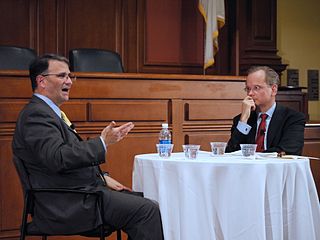11.13.13
Posted in Intellectual Monopoly at 11:20 am by Dr. Roy Schestowitz
Thank you, Wikileaks

Summary: Learning what the Trans-Pacific Partnership (TPP) is about (basically a corporate land grab of global scale) is now possible
A FEW months ago, the victims of TPP (who are over 99% of the world’s population) got hold of the leaked file from TPP negotiations, Wikileaks-secret-TPP-treaty-IP-chapter.pdf. Like Cablegate before it, this leak shows serious corruption. It shows how corporations are capturing political systems all around the world in order to provide themselves with protectionism. Glyn Moody told me a few hours ago: “it would be great to get this out to your networks – http://keionline.org/node/1825 they don’t want people to know what’s in TPP…”
Here some shorter analysis from KEI for those who haven’t time to read the whole thing. For the uninitiated, here is a video where Noam Chomsky explains what TPP is about. We’ll continue to post links about TPP and urge readers to fight TPP like a plague. █
Permalink
 Send this to a friend
Send this to a friend
Posted in GNU/Linux, Kernel, Tivoization at 11:07 am by Dr. Roy Schestowitz

Summary: Linux gets injected into it some code that potentially ties software to hardware (in the lock-in sense)
Based on antitrust exhibits, Intel’s relationship with Microsoft is complex, but Intel generally uses Windows to keep the Wintel cash cow going. Earlier this year I spoke to Intel employees who run the UEFI Forum (a forum decorated by some more members who help distract from the real dominating force) and I tried to be polite and constructive, advising the head of this forum to withdraw ‘secure’ boot. I didn’t bring up the fact that his employer, Intel, is a criminal company whose former staff plays a big role in parasites like Intellectual Ventures. I just pointed out that my brother in law works for Intel and that perhaps Intel can be changed for the better. But that was too optimistic. The utter mess which is UEFI ‘secure’ boot (harming hardware, not just computing freedom) goes forth and despite the fact that it is bricking devices with Windows on them (apparently things are getting even worse [1]), Linux developers let that nonsense enter the kernel, specifically for ARM [2], where so-called ‘secure’ boot cannot even be disabled.
“This is like another Tivoization taking place and Linux Torvalds, who spoke out against UEFI ‘secure’ boot, will probably just find some excuses for letting it be.”This is probably happening because Intel funds the Linux Foundation. UEFI Forum is Intel is Linux Foundation (in part). That’s how the influence of money works. This is like another Tivoization taking place and Linux Torvalds, who spoke out against UEFI ‘secure’ boot, will probably just find some excuses for letting it be. The situation is similar when it comes to the W3C (Linux Foundation equivalent), where corporate members (like Intel/UEFI Forum) push DRM into the Web while the founder, Tim Berners-Lee, just lets it be, essentially forcing everyone to just swallow the poison, even good forces like Eich/Mozilla [3].
The head of the UEFI Forum mocked or at least dismissed DRM as just for “business models”, but his employer promotes DRM. UEFI ‘secure’ boot — like DRM — is just about business models, so who is he kidding? Likewise, Berners-Lee has many reasons to dislike DRM given his historical background (he created the Web to share his work), yet he keeps defending DRM right now [1, 2, 3]. Are these people thinking for themselves or are they all just blindly/reluctantly following orders of those who pay their salaries? Rather than protect copyright monopolies in their respective areas (which is why the monopolies try to use DRM on the Web) or protect the monopoly of software crooks (who use bribe and sabotage to hold back GNU/Linux) perhaps those influential people should make a brave stand and rise up against corporate takeover, spilling some beans or using public humiliation to drive away the lobbyists. █
Related/contextual items from the news:
-
And then, there’s the celebrated Microsoft update to convert your Windows 8 RT computer into a Windows 8.1 RT… brick! It went so bad that Microsoft had to prevent people from installing it.
I don’t know if they fixed it but, according to this post, the update to Win 8.1 now seems to convert your computer into a cat (because it does not play nicely with mice).
-
While EFI was originally developed by Intel and largely targeting x86 platforms, the EFI 2.3 specification does exist for Itanium and ARM architectures too and early this year the UEFI Forum had shown a proof-of-concept UEFI boot environment for ARMv8. With the EFI pull for the Linux 3.13 merge window, the Linux EFI support extends to ARM.
-
If I didn’t before, after talking to Eich I had a strong sense that Mozilla is constrained by conflicting desires – to do the right thing, for example, while retaining enough browser share that it remains able to do the right thing. As you might expect, there are no easy solutions. Fortunately, things seemed more hopeful regarding another topic we discussed: I’ll be exploring that in my next column.
Permalink
 Send this to a friend
Send this to a friend
Posted in Apple, Deception, Google, Microsoft, Samsung at 9:59 am by Dr. Roy Schestowitz

Surveillance Don James R. Clapper back in his military days
Summary: Popular manufacturers of phones (and software platforms for phones) say that they cannot track switched-off phones, but they are lying using carefully-crafted statements
TECHRIGHTS is no friend of Nokia and Samsung, especially after what they did with Microsoft (regarding patents and beyond), but today we deal with a completely separate issue. It’s irrespective of brands. There is a lot of media hype (even brainwash) — accompanied at times by expectations from employers, peers, family and friends — to purchase and constantly carry a mobile (cellular) phone. I never really carried one, except in unusual circumstances (e.g. when going somewhere dangerous or an important meeting).
Well, as pointed out the other day, the thing about companies that say they can’t track switched off phones is that they are lying. They use semantics and wording that’s shrewdly designed to sort of say the truth while actually dodging the more accurate/well-targeted questions and the real issues (same as ‘cloud’ companies did after PRISM became public knowledge).
Leading companies in the mobile phones arena insist that they can’t track/listen to powered-down phones, but they can release updates which enable this, so in a sense they really can listen (they just need to take a step before doing this, it cannot typically be done directly). The phones cannot be switched off, they merely pretend to be powered down (mimicking this behaviour). There is a new article titled “Cell Phone Manufacturers Offer Carefully Worded Denials To Question Of Whether NSA Can Track Powered-Down Cell Phones” and it says the following: “Short of pulling out the battery (notably not an option in some phones), there seems to be little anyone can do to prevent the device from being tracked and/or used as a listening device. The responding companies listed above have somewhat hedged their answers to the researcher’s questions, most likely not out of any deference to government intelligence agencies, but rather to prevent looking ignorant later if (or when) subsequent leaks make these tactics public knowledge.
“Any powered up cell phone performs a lot of legwork for intelligence agencies, supplying a steady stream of location and communications data. If nothing else, the leaks have proven the NSA (and to a slightly lesser extent, the FBI) has an unquenchable thirst for data. If such exploits exist (and they seem to), it would be ridiculous to believe they aren’t being used to their fullest extent.”
“Apple’s devices are surveillance devices on steroids; they go a a long way (more than counterparts) to maintain the integrity of the eavesdropping functionality.”The problem is being downplayed, too. It’s actually a lot worse than just tracking. Phones with camera/s and microphone in them can also transmit images, video, and/or audio once they are converted into surveillance devices (carried by s/he who is surveilled and his/her surroundings). Earlier this year the Wall Street Journal released a report which says even Android is susceptible to this. The FBI exploits the back doors in order to take over microphones of Android devices.
I happen to be the only person I’m aware of who has been pulling batteries out of phones (inevitably reverting clock back to factory defaults) for a number of years now. I have written about this for a long time, but only after Snowden’s leaks can more people appreciate this. Removal of batteries is not “paranoid”. This ought to become more common a practice and everyone should be doing this, even if they “do nothing wrong” (we need to make it the norm if we are ever to impede abusive entities like the NSA). No phone that I ever touched or used had my name attached to it at the carrier. Never.
It is worth adding that Apple won’t even answer the questions. Apple is worse in many ways because it makes it virtually impossible to remove the batteries (sometimes there is more than one, and some may not be detachable). Apple’s devices are surveillance devices on steroids; they go a a long way (more than counterparts) to maintain the integrity of the eavesdropping functionality. Microsoft too is rather unique because there is no need to convert devices with Windows into listening devices; there are back doors there 'out of the box', which is hardly surprising because Microsoft and the NSA are in bed together. █
Permalink
 Send this to a friend
Send this to a friend
Posted in GNU/Linux at 9:27 am by Dr. Roy Schestowitz

My wife’s computer
Summary: Myth-busting regarding the difficulty — or lack thereof — when moving to GNU/Linux on the desktop
EVERYONE in my family (parents, siblings) is using GNU/Linux or has used it in the past. It is not hard; Android is used by almost everyone, but on the desktop too I never really encountered serious support-related issues/questions. So this new article from Life Hacker [1] irked me somewhat. It basically shows some screenshots very selectively and pretends that with Windows there can never be technical challenges (let alone routine complications like viruses, fragmentation, bad patches, lack of software repositories, lack of functionality on the desktop, restarts, freezes and the list goes on and on). Based on my experience, people choose to switch to GNU/Linux because Windows becomes a big mess requiring a lot of technical support, not because they are after a platform which is more complicated and technical. The motivations are technical, not idealogical. My wife uses KDE with multiple desktops, a clipboard stack (through Klipper), bash terminals, and ssh. These are not too hard to grasp, it just takes a bit of adjustment. Those four features are not even basic features, and they aren’t accommodated at all by Windows (in GNU/Linux these are all built in). There is one particular article [2] titled “Confessions of a 40 year old virgin”. Published only a few days ago, the article explains what a new GNU/Linux user may have to go through. It’s nothing too daunting. Slackware 14.1 was released some days ago [3] and it surely targets veteran users of GNU/Linux. It doesn’t need to create a stereotype about the level of difficulty of GNU/Linux, which is basically a stack that suits everyone, provided a suitably simple/advanced desktop front end. Point Linux 2.2 is another distribution which has just come out [4] and it goes a long way in simplifying things; to quote the new review, “Point Linux gives you the ability to watch Flash videos (and play games) as well as listen to MP3s by default.” When it comes to installing new software, it is so much easier than Windows. The ending words of this review say: “Whilst Synaptic isn’t as glamourous looking as one of the many software centres out there it is incredibly functional and gives you full access to repositories.” █
Related/contextual items from the news:
-
In the end, Linux is great for a lot of things, even if you don’t use it as your main OS. It’s perfect for setting up a home theater PC without buying Windows, or reviving a super old machine. But if you want to really dig deeply and use it as your main operating system, just know that things are going to be a little different than Windows or OS X. For some, it’s well worth the effort, but others may find that it’s too much work for little payoff. The only way you can know is to try it out for yourself.
-
Well actually, to be more specific, I was a LINUX virgin who didn’t know the difference between Ubunto (yes, in that spelling!) and Mint. And DarkDuck helped me to ‘pop my cherry’. Now I think that I should stop with the lame sexual analogies before this gets downright weird.
[...]
DarkDuck, the owner of the above mentioned site, suggested that it was probably worth waiting for the latest version and I took his advice, opting for the 64-bit version. The disk arrived a couple of days after the release date for 13.10, and the installation was fast and painless. I found a few tips on the web about configuring the Firewall and so on and now the laptop is working again.
-
Yes, it is that time again! After well over a year of planning, development, and testing, the Slackware Linux Project is proud to announce the latest stable release of the longest running distribution of the Linux operating system, Slackware version 14.1!
-
Point Linux 2.2 is a welcome blast from the past with the way it looks. It reminds you of how good things were back when Gnome 2 was prominent.
The performance of Point Linux on the Toshiba Satellite Pro that I am using is excellent.
I didn’t come across any issues whilst using Point Linux and the experience has been really good.
There is one thing I would like to add though. If I could go back to any point in time in my past then it would be either the 1970s or the 1980s.
I like the 1970s because in my head it would be like “Life on Mars” and I like the 1980s because I have lived through it once already and life seemed easier back then.
The truth is the reason why I would be happy back in the 1980s is because I know what happened and during my 1980s nothing bad happened.
The same can be said of Ubuntu back at version 10.04. I used it. I remember it well. It was great, it was stable and I really liked it and I know nothing bad happened whilst I used it.
Is that a good enough reason to go back in time?
Unity, Cinnamon, Gnome 3. They have all added something new and they are clearly the future of Linux. (Ok KDE as well, if you must).
Point Linux is like a time machine. It gives me back a really good operating system which works in a way I used to work. Do I still want to work that way? I am not quite sure.
Taking it on face value, Point Linux is a really nice operating system that performs well, is easy enough to navigate and has no real major issues. If that is what you need then it is well worth a shot.
Permalink
 Send this to a friend
Send this to a friend
Posted in Apple at 8:41 am by Dr. Roy Schestowitz

Lessig giving Abramoff a platform, photo by Madeleine Ball
Summary: The man behind Creative Commons lays out a strong case for abandoning Apple, but stops short of abandoning Apple
Professor Larry Lessig, who recently became famous for using his Apple gear and Apple software to produce slides about political corruption, is unhappy about Apple censorship and right now he speaks out against technical problems with Apple products [1]. This is significant because it comes from one whose fascination with Apple stuff sort of conflicts with the spirit of Creative Commons, for which he is responsible. Maybe it’s time for him to embrace GNU/Linux and Free/libre software.
In other interesting news, the infamously pro-Apple Pogue, who piled criticism on Windows Vista way back in the days (showing it was just a ripoff of Mac OSuX), is now moving to Yahoo [2], despite the company shrinking further (firings of more than 600 people in recent weeks) after Microsoft did to it what it also did to Nokia. █
Related/contextual items from the news:
-
Every Apple-related product I use has been crippled in important ways.
-
David Pogue, the technology writer for The New York Times, whose columns were among the most popular at the paper, said on Monday that he was leaving for Yahoo to start a consumer-focused technology site.
Permalink
 Send this to a friend
Send this to a friend
Posted in Google, Microsoft, Patents at 7:51 am by Dr. Roy Schestowitz

Summary: Microsoft’s shamed proxy “Association for Competitive Technology” (ACT) is reincarnated as “ACT4Apps” and lobbies for software patents, still
HAVING just assaulted Google/Android/Linux by proxy through Rockstar (a patent troll which Microsoft gave patents to [1] along with smaller Android foes [2]), Microsoft starts another assault, this time too using software patents. To Microsoft’s service come ACT and the BSA, as usual, plus some Microsoft people who would rather hide where they came from. Leading this assault there’s Jonathan Zuck, as usual. There are lies in their “about” page. Just as Jonathan Zuck and his lackeys pretended to represent thousands of SMBs in Europe they now pretend to be spokespeople for app developers. The site of their new shell says: “ACT has emerged as the leading voice for the app developers who make up the $20 billion app marketplace.”
“If you see “ACT4Apps” mentioned anywhere in the press, be sure to point out to writers/publishers/readers what “ACT4Apps” actually is and who’s behind it.”Really? Liars!
We have already sent a complaint to the FTC about this AstroTurfing parasite, but the FTC is hardly responsive. This disgusting pest called Jonathan Zuck not only works for Microsoft (Microsoft pays him) by promoting software patents; it is the lobbyist who also fought ODF when Microsoft was desperate to defend the monopoly using bribes and all sorts of corruption.
Timothy B. Lee has some people’s testament/information explaining Microsoft’s role in all this. The best article which ties it together comes from Mike Masnick [3], who also shares a nice new video about patent trolls [4].
If you see “ACT4Apps” mentioned anywhere in the press, be sure to point out to writers/publishers/readers what “ACT4Apps” actually is and who’s behind it. This isn’t the first time that ACT is nymshifting, moving its staff under a new umbrella with a new name in Washington. This is just another AstroTurf effort, just like “Consumer Watchdog”. █
Related/contextual items from the news:
-
We’ve seen plenty of skirmishes come and go already, of course, but the latest example — in which that thinly veiled and proprietary minded entity known as “Rockstar” is suing Google and other Android users — is being called nothing short of “thermonuclear” war.
The expression, of course, hearkens back to the words of the late Apple CEO Steve Jobs, who considered Android a “stolen product.” Now, Rockstar — which, not coincidentally, includes Apple — appears to be making good on Jobs’ combative words.
-
The lawsuit filed by patent troll Rockstar Consortium Inc. on Halloween against Google and at least five makers of Android handsets is about much more than merely the tons of money that would be reaped if the Rockstar cartel prevails. Mainly, it’s about gaining a competitive edge that could result in increased market share down the road.
-
That letter was actually put together by the BSA (the “Business Software Alliance”), a trade group that pretends it represents “the business software industry,” but which everyone knows takes its marching orders from Microsoft. In a recent interview with a BSA official, Tim Lee at the Washington Post pointed out that Microsoft seems very opposed to the expansion of CBM, and suggests that Microsoft is driving the BSA’s position against this. He also points out that there’s an obvious reason for this: Microsoft has a ton of low-quality patents that it doesn’t want to lose. The BSA official tries to tap dance around the whole thing, but doesn’t make much sense. Basically, they don’t like CBM because there are other ways to deal with bad patents — even though those aren’t working.
Of course, Microsoft is not exactly known for attacking on a single front. Another well-known Microsoft front group is a group called ACT, the Association for Competitive Technology, which calls itself a “grassroots advocacy organization” representing “small and mid-size app developers,” despite the fact that the organization only seems to reflect Microsoft’s interests. ACT has also set up a related organization specifically for app developers, called “ACT 4 APPS” which looks like it’s trying to be what the App Developer’s Alliance actually is, but without actually caring what actual app developers want. For example, last week, it sent a letter to Goodlatte arguing against CBM, just like the BSA, but in complete contrast to the App Developer’s Alliance. The App Developer’s Alliance has hundreds of names signed onto their letter in favor of expanding CBM and being able to knock out bad patents quickly.
In contrast, ACT 4 APPS’ letter could only turn up 14 signatures. And almost all of them appear to have some sort of close connection to… (you guessed it)… Microsoft. One of the signatures is from a former ACT employee, who appears to have just left a few months ago. And with at least ten of the other signatures, they appear to be Microsoft partners.
[...]
When you look at the letters from the BSA and from ACT, it seems pretty clear that Microsoft is deathly afraid of this accelerated review of crappy patents, and it’s getting various groups to “front” that effort with letters to Congress. But when you dig deeper into those letters and look, it’s pretty clear this is just Microsoft knowing that an awful lot of its patents are likely to be of very low quality, and easily challenged under such a program. Next time, perhaps Microsoft should focus on actually innovating, rather than betting so much of its strategy on shaking down companies with weak patents.
-
Over the last few years, Next Media Animation has become something of a cult hit for their famed “Taiwanese animation” of various news events. We’ve written about them a few times, such as when they did a news animation of the outrage over TSA scans and again when they took on SOPA. The folks over there got in touch to let us know that they recently did one on patent trolls…
Permalink
 Send this to a friend
Send this to a friend
Posted in GNU/Linux, Google at 7:25 am by Dr. Roy Schestowitz

Photo by Derzsi Elekes Andor
Summary: In this age of Android smartphones, tablets, and even Chromebooks, Google’s role as a key player in the GNU/Linux world is debatable
Google is probably Microsoft’s #1 nightmare. It puts in jeopardy the future of both Windows and Office, Microsoft’s few cash cows and monopolies (the latter depends on the former, so when the first is dead, the latter too will die). Google has been receiving a lot of abuse from Microsoft; some examples will be given in the next post. But it is worth thinking what promoting Google would do to GNU/Linux as a free (freedom-respecting) operating system.
“It is very hard to leave anonymous comments on Google-run services and sites.”The other day there was an article titled “Google’s Motorola wants to tattoo a microphone on your neck” [1] and it was based on a patent. Polygraphs are ‘snake oil’, but this is pretty much how this thing gets advertised. It is very Big Brother-like. This is similar to a satirical new article [2] titled “Multiple Wyoming School Districts Implant RFID Chip Technology In Students Without Parental Consent” (untrue) and the true story [3] about Google’s efforts to require real ID on the Web (as demonstrated by Google Plus, in addition to a lot of tracking and a never-dying cookie). One serious problem with Google is its assault on anonymity, which should be considered a crucial tenet. It is very hard to leave anonymous comments on Google-run services and sites.
Richard Stallman, who is far from a Google sceptic, is not too happy with Google’s treatment of anonymity. He writes in his personal Web site: “I reject Facebook and Google+ on principle because they require people to give their “real names”. I am proud to identify myself when stating my views; I can afford to do that because I am in a fairly safe position. There are people who rationally fear reprisals (from employers, gangsters, bullies, or the state) if they state their views. For their sake, let’s reject any social networking site which insists on being told a user’s real name.
“Google+ offers to hide the user’s real name, but demands people prove an “established identity” or provide ID. I am suspicious of this requirement, since it can’t hide the user’s real name from the US government, which has a policy of prosecuting journalists as “spies”.”
“I am suspicious of this requirement, since it can’t hide the user’s real name from the US government, which has a policy of prosecuting journalists as “spies”.”
–Richard StallmanGoogle has done too little to defend Wikileaks and other such efforts; in fact, based on Schmidt’s meeting with Assange, Google is in many ways part of the problem, denying us access to what those in power are trying to hide (e.g. Cablegate). Google says it wants to improve access to information, but Google limits the scope of this information (selectivity) and is increasingly engaging in censorship, too. This is not reassuring. It’s not just something which Google does in China, not anymore anyway.
There are of course other problems with Google, which does too little to oppose NSA snooping. Thankfully, Google hardly makes an effort to pull the files of GNU/Linux users [4], unless of course they use Android, in which case there’s promotion of a so-called ‘feature’ known as remote backup (sending all your personal data — including passwords — to Google’s NSA-accessible datacentres). The situation is similar when it comes to ChromeOS, which GNU/Linux bashers like David Gewirtz seem to have no problem with [5] and colleagues at ZDNet claim to be on the rise [6]. As some GNU/Linux users start to explore ChromeOS [7] as an option (locked down, more surveillance than a typical GNU/Linux distribution), there’s reason for concern and caution; it’s not that ChromeOS (or its “open” equivalent) is malicious, it’s just that it’s a step away from where we wish to be with freedom- and privacy-respecting GNU/Linux. █
Related/contextual items from the news:
-
How to start on this one? Well, Google’s Motorola subsidiary has filed a slightly strange patent with the idea that you should have a smartphone microphone tattooed onto your throat. According to the patent, the tattoo would be placed onto a person’s neck to pick vibrations directly from their larynx.
-
Overall public opinion of the RFID seems to be positive among Hanna’s townsfolk. I spoke with Earl Gentry, a retired miner, longtime resident of Hanna, Wyoming and one of the first recipients of the RFID Chip in his community. He told me the following:
“Heck, I don’t know how I lived without one. I use the RFID Chip at the doctor’s office; I’m able to purchase food and clothing from all my favorite stores. I definitely believe our country would benefit from a federally mandated RFID law.”
-
When we created feedly a few years ago, we made the decision to use Google OAuth as our authentication service. The goal was to let users safely login with their existing Google identity instead of having to create and manage yet another identify.
Google has been slowly transitioning from Google OAuth to Google+ as their unifying identity system. This transition opens the door to interesting opportunities like simpler login across devices – and a lot more.
We are following on Google’s lead and transitioning feedly from Google OAuth to Google+ login.
-
For some reason, Google seems to dislike Google Drive users who prefer Linux. I find this particularly strange, since Google’s Chrome OS is based on Linux.
-
-
Some people are still in denial about the rise of the Linux operating system with the Chrome Web browser interface, Chrome OS, and its hardware: the Chromebooks. The experts say, however, it’s the one segment of the PC market that’s growing while everything else shrinks.
-
I am a rather mobile person. Mobile in the sense of technology I can pick up and relocate at a whim. Even though my primary computer is a gaming desktop, a recent hardware failure helped me to realize that I can be just as productive on my trusty MacBook. My laptop can do just about everything my desktop can (other than running high-end games that is) and my iPad is great for browsing the web and interacting with social media on the go. Last year I took it with me when I went to Disney and it performed very well as a dedicated Reddit, Facebook, Twitter and Kindle client.
Permalink
 Send this to a friend
Send this to a friend
Posted in News Roundup at 6:22 am by Dr. Roy Schestowitz
-
-
A startling fact is that there are in excess of a billion people who have some type of disability. That represents approximately 15% of the world’s population with a physical, sensory or mental limitation that interferes with their ability to move, see, hear or learn. 350 million people in the world are partially sighted or blind. The faster computer technology evolves, the more excluded these individuals would become without development in computer software that seeks to address their needs.
-
-
-
Whether you are actively considering a move away from Photoshop, or simply hoping there is a non-proprietary tool for reading your Photoshop images if you ever decide to stop subscribing to Adobe’s cloud, you’ve probably wondered about GIMP. A free, open-source, image editor, the GNU Image Manipulation Program (GIMP) has been a go-to tool for Linux users for years, but has a reputation for being hard to use and lacking many of Photoshop’s features. The reality has changed dramatically over the last couple years. GIMP now has a very competent user interface, as well as an extensive and powerful set of features. Its openly extensible nature means that in some areas, like running well-known image processing algorithms on your photos, it actually outshines Adobe Photoshop.
-
I was disappointed with the “beta” release for GNU/Linux. It seemed “alpha” to me and was very awkward to install. There’s news of a new release for December, synchronized for That Other OS and GNU/Linux. It should be smoother this time. Perhaps I’ll really get to do something with it.
-
With past ISP problems, I’ve been able to run a continuous ping to an outside IP address and show the tech-support representative that I have packet loss. Unfortunately, a running ping command doesn’t give a history of when the packets are lost. With SmokePing, not only is there a record of when packets are lost, but there’s also a graphical representation of how many packets were lost, and from several IP addresses to boot.
-
-
-
-
-
I spent the past year writing The Librarian’s Guide to Academic Research in the Cloud, a book which focuses on using and thinking about cloud services in an academic research context. I’m fortunate enough to belong to a union that negotiated research leave for new faculty, and that leave made the book possible.
-
Keeping a daily journal is one of the best ways to keep your thoughts organized. Not only can it help you think more clearly, it can also help you reflect on your past actions. After writing for a while, you’ll get used to putting your thoughts in text form and reflecting upon them. Journaling isn’t something new, though. The act of writing a journal has been practiced for centuries. However, it is now that this lost art form is regaining its popularity.
-
We cut the cord a couple of years ago, the need to get TV over traditional TV Ariel was no longer needed and services such as TV Catchup, iPlayer and the other UK Catchup TV Channels streamed over the net to my TV were all we needed.
-
-
Permalink
 Send this to a friend
Send this to a friend
« Previous entries Next Page » Next Page »
























 Content is available under CC-BY-SA
Content is available under CC-BY-SA